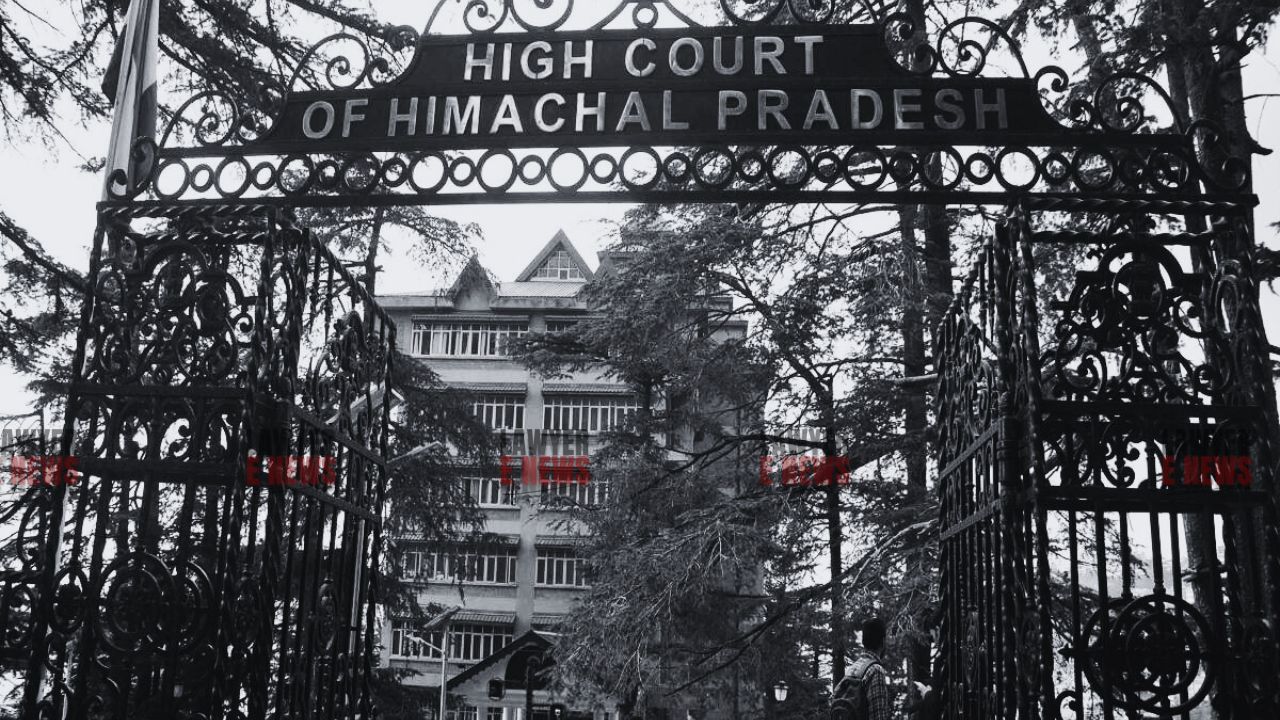-
by Admin
15 February 2026 5:35 AM



Himachal Pradesh High Court acquitted the appellants in Dharam Chand & Ors. vs. State of Himachal Pradesh, overturning their previous conviction for the murder of Dev Raj. The court found significant inconsistencies in witness testimonies and deemed the forensic evidence inconclusive. The acquittal follows an appeal against the 2019 trial court judgment, which had sentenced the appellants to life imprisonment under multiple charges, including murder and arms violations.
The case stems from the October 4, 2015, incident where Dev Raj was fatally shot while collecting herbs with his cousin, Chain Lal, in Pangi, Himachal Pradesh. Following the incident, Chain Lal fled and reported the crime to the police. The FIR was registered based on hearsay evidence, leading to the arrest of Dharam Chand and others. The trial court convicted the accused in 2019, sentencing them to life imprisonment under various sections of the Indian Penal Code (IPC) and the Arms Act.
The appeal challenged the trial court's decision, primarily arguing that the case relied heavily on the questionable testimony of an alleged eyewitness, Chain Lal. The key legal issues revolved around the credibility of witness statements, the timing of the FIR, and the admissibility of confessions and forensic evidence.
Delayed FIR: Despite Chain Lal being the eyewitness, no FIR was immediately registered based on his statement. Instead, a hearsay account from PW10 Brij Lal was used, raising questions about the investigation's integrity.
Doubtful Eyewitness Testimony: The court noted that Chain Lal's behavior following the incident was suspicious. His failure to inform the family or promptly report the crime raised concerns about his credibility. Moreover, his inconsistent statements, such as omitting the role of the accused in initial reports, weakened the prosecution’s case.
Failure to Conduct Identification Parade: The accused were unknown to Chain Lal, yet no identification parade was conducted to confirm their involvement. This omission cast further doubt on the prosecution’s reliance on Chain Lal’s later identification of the accused during the trial.
The High Court found that the prosecution had failed to provide reliable evidence linking the appellants to the crime. The court highlighted discrepancies in the disclosure statements, with witnesses contradicting each other about the circumstances under which these statements were made. It also noted that the forensic evidence, particularly the ballistic reports, were inconclusive. The report from the Forensic Science Laboratory (FSL) could not definitively link the cartridges to the gun allegedly used by the accused, further weakening the case.
"The prosecution has failed to prove on record that any such disclosure statements were made or that any recovery was made pursuant to such statements. Moreover, disclosure statements being in the nature of confessions are otherwise not admissible in evidence."
The court also criticized the trial court for allowing the prosecution to declare a witness hostile under improper circumstances, stating that:
"Merely because a witness speaks the truth, which may not suit the prosecution, does not entitle the court to declare him hostile."
The Himachal Pradesh High Court set aside the trial court’s conviction, ordering the immediate release of the appellants. The judgment underscores the necessity of reliable, corroborated evidence in criminal prosecutions, especially in cases where witness testimony is inconsistent and forensic evidence is inconclusive.
Date of Decision: September 25, 2024
Dharam Chand & Ors. vs. State of Himachal Pradesh.
